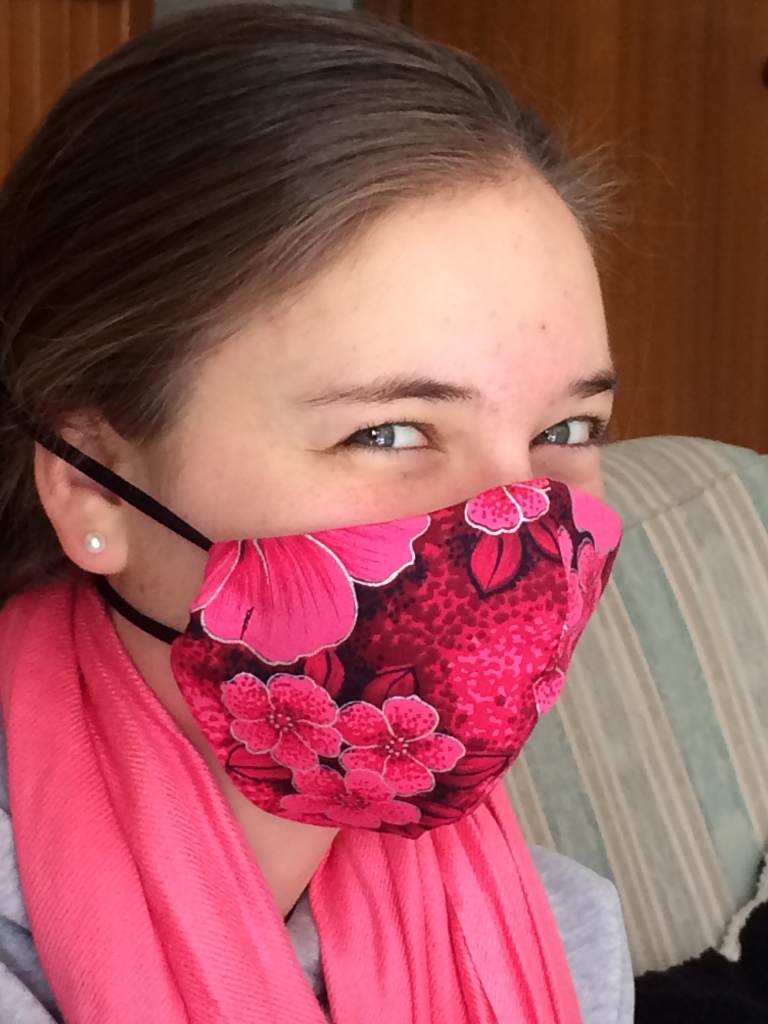We can experience culture shock when we travel from one country to another and are living there for an extended time. Customs and language in the new world are different. It takes more thought to get regular tasks done, because they are unfamiliar. When we do things on a regular basis, like tying our shoe laces or going for a walk, we don’t expend much thought – our hands and legs know the moves. However, in a new culture, so much is not automatic and needs to be learned. Until we are acculturated, a lot of energy goes into even simple tasks, like shopping or greeting people.
Covid Culture Shock
In this Covid era, we have had a new culture thrust upon us with the many customs that have been altered. The wearing of masks, keeping distances, rules about where we can go and in what numbers, as well as how to do the simplest things have meant we have to think critically and put in extra effort. Before we leave home, we need to remember the mask, the defogger on our glasses and the documentation that allows us to travel.

We are experiencing the grief of the loss of our known ways as we try and embrace the new. Culture shock carries its own kind of grief. Some missionaries may not last the distance in their host country if they interpret the grief of losing their home culture as symptoms of being ill-equipped for the job. They may have sadness they can’t account for or bouts of anger. These are most often symptoms of the natural process of loss and recovery. Grief involves certain phases (though not always in this order): numbness, denial, anger, sadness and eventually resolution. How long we grieve is influenced by a number of factors, like the support we have, how traumatic the loss is and so on. Understanding the process helps us deal with our grief better.
Loss and Grief
The Covid crisis has provided its fair share of grief, dependent on what has been lost. It shouldn’t surprise us to feel anger or sadness over the loss of relationships, work, ease of living, recreation and so on. A number of people have had deaths in their family at this time and even in the funeral experience there are unresolved emotions, as they aren’t allowed to experience the cultural ways we traditionally expect.
At my own mother’s funeral I remember the comfort of seeing the faces of friends and family as they expressed their condolences. Each face was a blessing; each hug a sign of warmth and caring. As numbers at funerals have been limited, people cannot grieve in the manner to which they are accustomed. The mutual comfort that might have been given in presence and touch is significantly diminished.
When we grieve, we hurt and the human response is to look for ways to bring ourselves comfort. At times we might react emotionally and feel like lashing out at others or perhaps turning to substances or behaviours that bury the pain, but these are unhealthy and only extend the pain. God wants to help us in our grief, often using people to bring that comfort.
Finding Comfort
Even Jesus looked to humans for comfort. In the Garden of Gethsemane, when facing His imminent death, Jesus longed to have the support of his disciples. He was stricken with grief and implored His disciples to stick around and pray with Him (Matt. 26:38). After returning from agonising in prayer with His heavenly father, He found that His disciples had fallen asleep. He did this a number of times. Was he looking for comfort in their company?
Ultimately, Jesus dealt with suffering by praying – seeking God’s company, talking to him and hearing his voice. Without the comfort of even his closest friends, God actually sent an angel to minister to him (Luke 22:43).

Angel Hope1
If we are creative we can find new ways to find comfort in this time of loss. Some of us have found humour a good way of getting through the tough times and the internet abounds with covid parodies. Bruce wrote Covid Twist2, and we enjoyed performing it as a family – one fun way of coming to terms with our experience of Covid grief.
Thankfully, many of us have technology that allows us to see others faces, to hear their voices and we can even send Uber gifts of coffee and doughnuts. Nevertheless, there is nothing quite like the tender physical touch of another human being. We were created for it!
My heart goes out to the elderly. My maternal aunt is currently in hospital having just had surgery on her leg following a fall. While I know the staff of the hospital are doing their utmost to care for her, she is unable to have visits from her children to bring the comfort and love that only family can. This is an example of the harsh ramifications that some of the Covid rules bring to our customs of caring.
When Jesus’ disciples were not able to be present in his moment of grief, God provided supernatural comfort. We may not be able to experience human comfort as we are accustomed, but God remains faithful and forever the lover of our souls. Let us be kind to ourselves in this time of change as we grieve the losses and seek God for His inspiration and comfort that we in turn may find the means to bring comfort to those around us.
How are we coping with grief at this time?
1 Adapted from https://pixabay.com/photos/fantasy-angel-sky-clouds-landscape-4655368/
2 With thanks to OliverTwistNL for his versions of the backing tracks, originally written by Lionel Bart for Oliver Twist.

Very good blog post, Meralisa! Congratulations to the family too, for the fantastic musical! xx Grace
LikeLiked by 1 person
Thanks, Grace
LikeLike